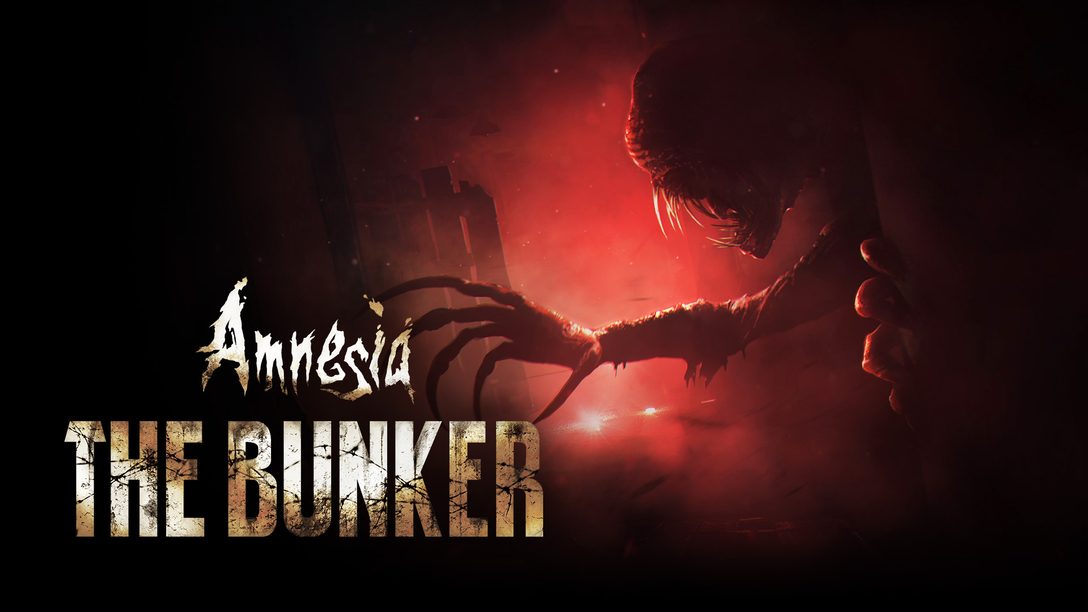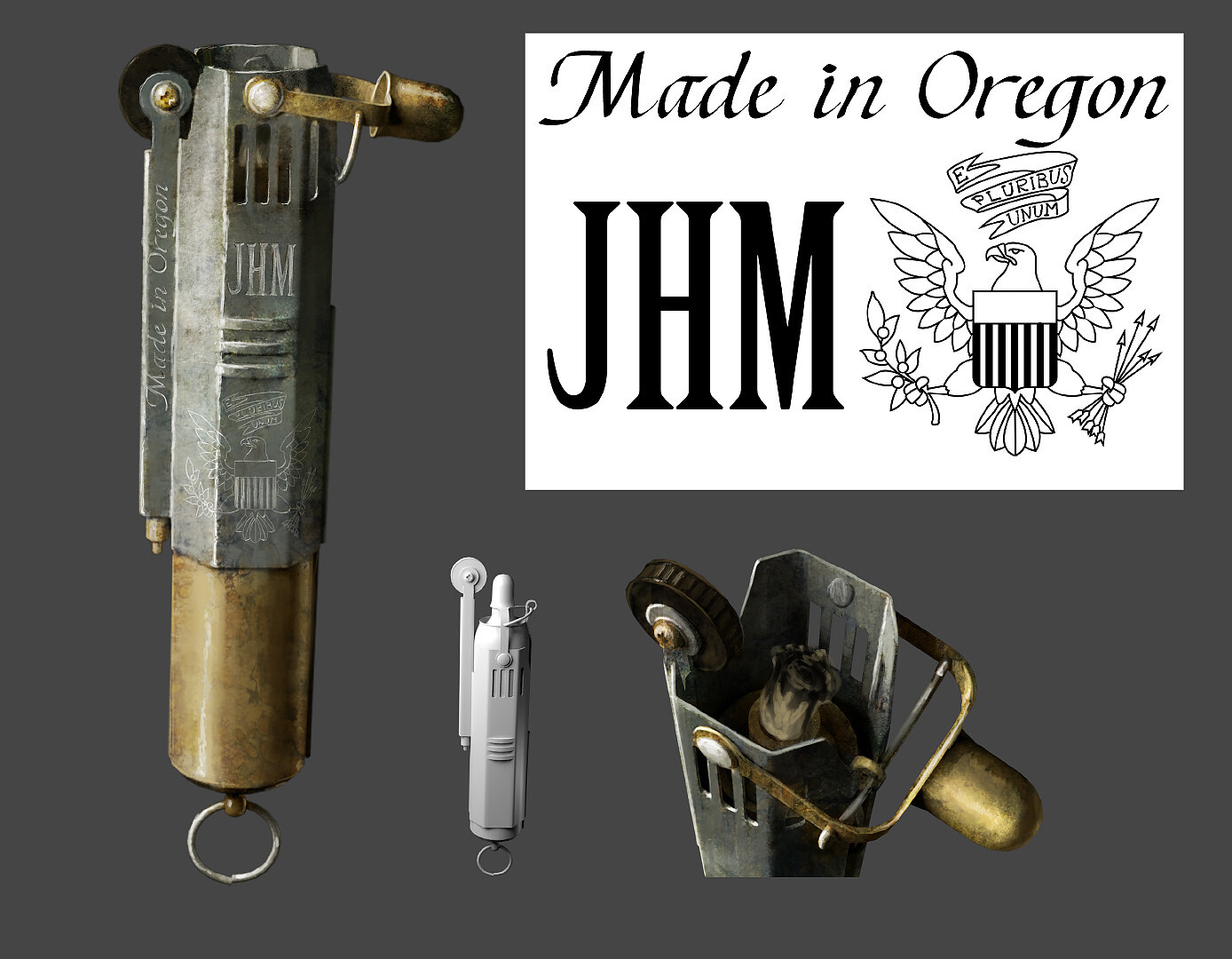
Frictional Games details how you’ll keep yourself alive and out of danger in this new take on the horror series.
When we first started with game creation at Frictional Games, we knew we wanted to make immersive horror experiences. We threw in everything we could think of: puzzles, physics, combat, creepy dream sequences – you name it. Those of you who played Penumbra: Overture will remember these elements well. Now, as we approach the launch of Amnesia: The Bunker – coming to PS4 on June 6 – we wanted to take a look back at how we’ve further refined our formula and approach to games.
The real breakthrough arrived with Amnesia: The Dark Descent. We started focusing on key aspects that led to a much more engaging experience. We cut away combat and all other aspects that didn’t directly fuel the horror experience. This led to players noticing more about their environment and becoming more deeply engaged. A simple sound effect, for instance, could trigger intense reactions, causing players to run and hide. Players become immersed with the happenings in a way we hadn’t seen before.

One of the only relatively safe places in Amnesia: The Bunker – the administration office. Check the map carefully, planning your next move is crucial to your survival.
This revelation showed us that we could use such techniques to propel the narrative in new ways. Few games at the time were doing this, and we felt we could still push the boundaries. This is how SOMA was born. We asked ourselves: Instead of scaring players, could you evoke similar immersion in more complex topics? In the case of SOMA it became: can you make them question the nature of consciousness? Five years of work later – turns out you could.

In Amnesia: The Bunker, the revolver is used to shoot off a padlock, showcasing how it can be used as more than just a weapon.
We then aimed to expand our studio into a two-project operation, splitting our team in two. One group worked on Amnesia: Rebirth, where we sought to intertwine gameplay and narrative more tightly, introducing mechanics (like simulating a belly rub) that carried significant story implications. We were proud of the result but felt we could have pushed further. A clear sign of this was that, once players knew the game, they would approach each section in a predictable manner. The gameplay simply wasn’t pushing far enough to truly empower the player.
The lighter. A very important item used to craft various tools, such as a torch that can be used to fend off rats.
With Rebirth launched, and our other project – let’s call it the Super Secret Project – still underway, Fredrik Olsson, who was the creative lead on Rebirth, proposed a simple idea: Why not have one monster, give the player a gun, and unleash them in an open world? This was a smaller, more focused project we could finish before the Super Secret Project. The Bunker was born.
This concept diverged significantly from our recent games, but if we trace back to our origins with Penumbra: Overture, it’s not that far off. In Overture, players tackled monsters in a freeform manner, using weapons, setting traps, and igniting canisters. The Bunker aims to do the same, but to take it up a notch.
Concept of the revolver, first usable firearm ever in a game by Frictional Games.
At a similar time when Bunker was conceived, it was becoming clear that the Super Secret project wasn’t heading in the right direction. Things felt too linear, not open-end enough. Inspired by The Bunker, we decided to steer our other project towards a more open-ended, gameplay-focused direction as well.

When you run out of options, using brute force to gain entry may be the only choice. Careful though, it makes a lot of noise and might attract unwanted attention.
As a narrative-focused company, we strive to create stories in which the player feels like an active participant – it’s a core part of our DNA. The common thread in all our games is the exploration of something (be it the nature of the mind or the experience of pregnancy) from an active, first-person perspective. The Bunker needed to uphold this ethos, despite the project’s limited time and resources. We went with a simpler, more straightforward narrative: “It’s WWI. You’re a soldier trapped in a bunker, and a deadly beast lurks in the shadows. Escape!” The entire game is dedicated to telling this story as effectively as possible. While not as complex as previous entries, it is still very much a story-driven experience.
This marks a new trajectory for us as a company. Or perhaps more accurately, it’s us revisiting an older path and exploring what we can do with it. Starting with Amnesia, we began stripping away gameplay elements to see how far we could push that approach. Now, we’re bringing systems, mechanics, and player agency to the forefront. We’re curious to see how far we can take this. The Bunker is an intriguing first step, being smaller in scope and aiming for a very specific experience.
Despite being small and specific doesn’t mean it was a breeze to create – quite the opposite. A host of interesting challenges arose during development. For instance, the open-ended nature of the game means that there are always multiple ways to get through doors. In our previous games, passing through a door would be carefully scripted with one, or occasionally two, specific solutions available.
In The Bunker, we simply endow doors with certain properties, provide some tools, and then let the player figure it all out. In a game where we want to curate a certain holistic experience, this is quite tricky. There are certain high-level notes, and this must occur regardless of how the player chooses to play. Solutions include making these beats more system-based (e.g., changes in monster behavior) or setting up obstacles in such a way that there’s always a way to overcome them, no matter what resources the player has.
It will be fascinating to see how players approach the game. We’ve already learned numerous lessons that we’re incorporating into the next project, and even more insights will emerge as we release this game into the wild. We’re eager for you all to try out The Bunker, not just as a new entry but also as the first step in a fresh direction for us as a studio.














Comments are closed.
5 Comments
Loading More Comments